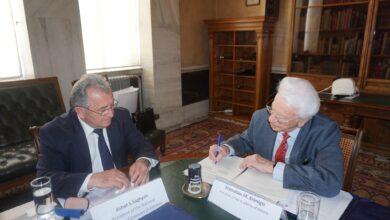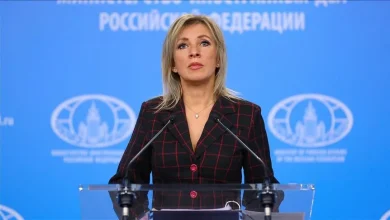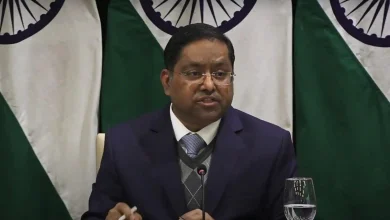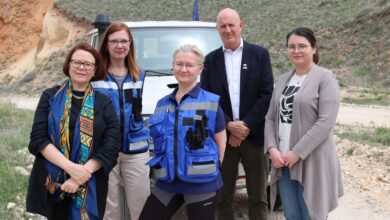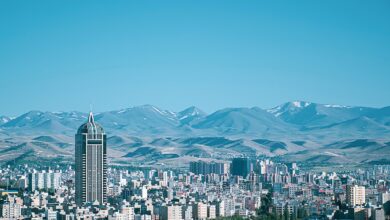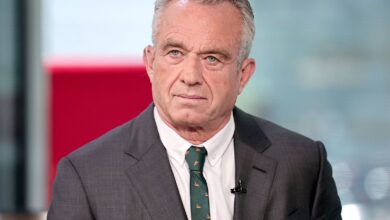
Australia’s peak human rights body has added an avowed holocaust denier to its Racism Stops With Me campaign, writes Meher Grigorian.
Olympic legend Dawn Fraser was intolerant for suggesting that tennis player Nick Kyrgios go back to where his parents came from. Senator Eric Abetz’s referral to US Supreme Court Justice Clarence Thomas as a “negro” was harmful.
Covering up the murder of a nation, and branding those pursuing its remembrance as motivated by material gain – that’s no problem.
This is the stance of Tim Soutphommasane, Race Discrimination Commissioner with the Australian Human Rights Commission (AHRC), in embracing the Australian Turkish Advocacy Alliance (ATAA) as an official partner in the Racism. It Stops With Me campaign.
The ATAA is an aggressive denier of the Armenian genocide, the Ottoman government’s systematic extermination of its Armenian subjects from 1915 to 1923, a campaign that claimed up to 1.5 million lives and also engulfed that empire’s Assyrian and Greek populations.
The stance of the Australian Human Rights Commission is an embarrassment to a growing number of Turks who acknowledge the Armenian genocide, including Nobel laureate Orhan Pamuk, co-chairman of the German Greens party Cem Özdemir, the Turkish Human Rights Association and the Peoples’ Democratic Congress of Turkey, whose political wing is the fourth largest party in Turkey’s parliament.
In misrepresenting the Armenian genocide as a ‘debate’ between Armenians and Turks, the ATAA wilfully disregards Raphael Lemkin (the jurist who coined the term ‘genocide’ and spearheaded efforts in outlawing it), the United Nations Sub-Commission on Prevention of Discrimination and Protection of Minorities, the International Association of Genocide Scholars and 29 national parliaments, including that of Turkey’s First World War allies Germany and Austria.
The ATAA has sponsored speaking tours of notorious genocide deniers. It has praised the Talaat Pasha Committee, an organisation named after one of the twentieth century’s worst mass murderers and deemed “xenophobic and racist” by the European Parliament.
It also accuses Armenian-Australians of having unscrupulous motives – by unduly seeking “land and compensation” – in affirming the genocide, even though that calamity ultimately explains how most Armenian-Australians came to be here.
None of this has stopped Tim Soutphommasane from anointing the ATAA as an anti-racism crusader. His endorsement is all the more strange given unequivocal condemnations of the Armenian genocide by past and present leaders of the Australian Human Rights Commission (AHRC), including Tim Wilson, Sev Ozdowski, Marcus Einfeld and Brian Burdekin.
The Turkish community is a valued partner in our fight against racism – Australian Muslims are on the receiving end of some of the worst discrimination in our society. But why choose the ATAA for this purpose?
The ATAA’s denial harms members of Australia’s Armenian, Assyrian and Greek communities, many of whom are descendants of genocide victims and survivors. It renders impossible any healing process for them. And it represents what Holocaust survivor and Nobel laureate Elie Wiesel calls a “double killing”, as it strives to destroy the memory of the victims.
Denial also harms the perpetrators and their descendants. To this day, Turkey struggles in its dealings with minority communities – just ask the Kurds.
Democratic norms there are under constant pressure. Dissidents are liable to two years’ imprisonment if they publicly denigrate “the Turkish Nation”, its parliament, judiciary or military or police forces.
National pride continues to be safeguarded by rehabilitating war criminals like Talaat Pasha (he enjoys an official memorial in Istanbul and has streets named after him throughout Turkey) instead of celebrating the true Turkish heroes of that period, the victims’ rescuers.
Denial harms third parties too. In Australia, our Federal Government vacillates between evasion and silence in dealing with the Armenian genocide, in an effort not to offend the Turks.
Exhibits at the Australian War Memorial omit mention of the Armenian genocide, despite its eruption coinciding with the Gallipoli landings, and Anzac prisoners-of-war witnessing some of the misery to which Armenians were subjected.
Australians have been the poorer for not knowing that our typically generous response to overseas disasters has its origins in our relief efforts for Armenian genocide survivors. This incredible humanitarian campaign lasted some 25 years – between 1915 and 1940 – reaching its peak in the mid 1920s. February 3, 1918 was even declared ‘Armenia Sunday’ across the nation, with churches from every denomination engaged in the fundraising.
These and other neglected parts of Australian history are the subject of the upcoming book by Vicken Babkenian and Peter Stanley, Armenia, Australia and the Great War, published by NewSouth Books.
The Racism. It Stops With Me campaign now counts amongst its partners an organisation peddling genocide denial (the ATAA) and another that valiantly fights Holocaust denial (the B’nai B’rith Anti-Defamation Commission).
At least you can’t say the AHRC isn’t committed to diversity of opinion.
Meher Grigorian is a director of the Australian Institute for Holocaust and Genocide Studies.


